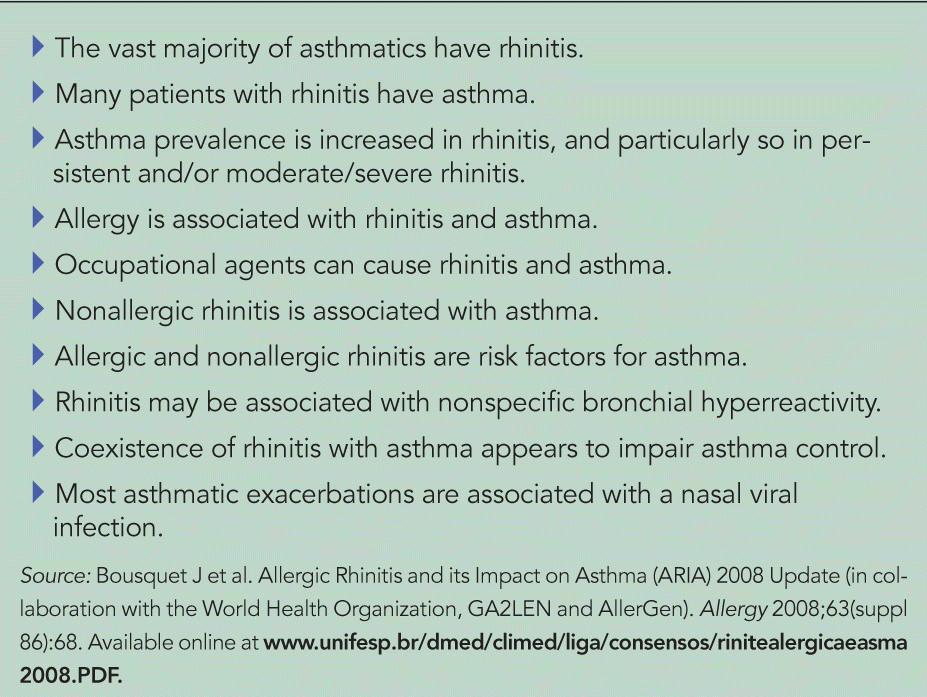For otolaryngologists, who are often the first-line of defense in diagnosing and treating many common respiratory ailments, differentiating the potential culprits behind sneezing, wheezing, stuffy nose, heavy chest, and chronic cough demands an ever-growing need to recognize and identify underlying conditions that include allergies and asthma.
Explore This Issue
April 2009No new turf for otolaryngologists, managing allergies has long been a central part of many otolaryngologic practices going back to the 1940s. What is fairly new to otolaryngology over the past 10 to 15 years, as evidenced-based medicine has taken root among all clinical areas, is the increasingly organized way in which otolaryngology manages allergies-and this, in turn, has forced a more comprehensive way of looking at patients.
As education in otolaryngology has become more codified, it has forced us to look at how effectively we are treating allergies, said Bradley F. Marple, MD, Professor of Otolaryngology at University of Texas Southwestern Medical School in Dallas. It has become more apparent that people with allergic rhinitis will frequently have lower airway disease-in other words, asthma-and that to safely and effectively take care of allergies, many times we need to be aware of the asthma component.
Best Patient Care Is Comprehensive Care
Recognition of the presence of asthma in many patients who present with allergies has steadily increased over the years, with many studies now showing the high incidence of these conditions coexisting. The recently updated Allergic Rhinitis and Its Impact on Asthma (ARIA) guidelines report that up to 80% of people with asthma also have allergic rhinitis.1 Conversely, data show that patients with known allergies have a 50% chance of having or developing asthma.
There is a very large overlap between allergic rhinitis and asthma, given that these are diseases of the respiratory tract, albeit at different ends of that respiratory tract, one being north and the other south, said Richard C. Haydon III, MD, of the Division of Otolaryngology in the Department of Surgery at the University of Kentucky in Lexington. A list of the many ways these conditions overlap is shown in Table 1.
Given the high incidence of interaction of these conditions with one another, an effort is under way in otolaryngology to increase awareness of the need to recognize, diagnose, and possibly treat asthma in patients who present with allergies. In a recent editorial, Pillsbury and colleagues emphasized that otolaryngologists, as specialists in the upper airway, are in a unique position to diagnose, and perhaps manage, patients with lower respiratory problems such as asthma, and encouraged their colleagues to gain knowledge and expertise in this area.2

Leave a Reply